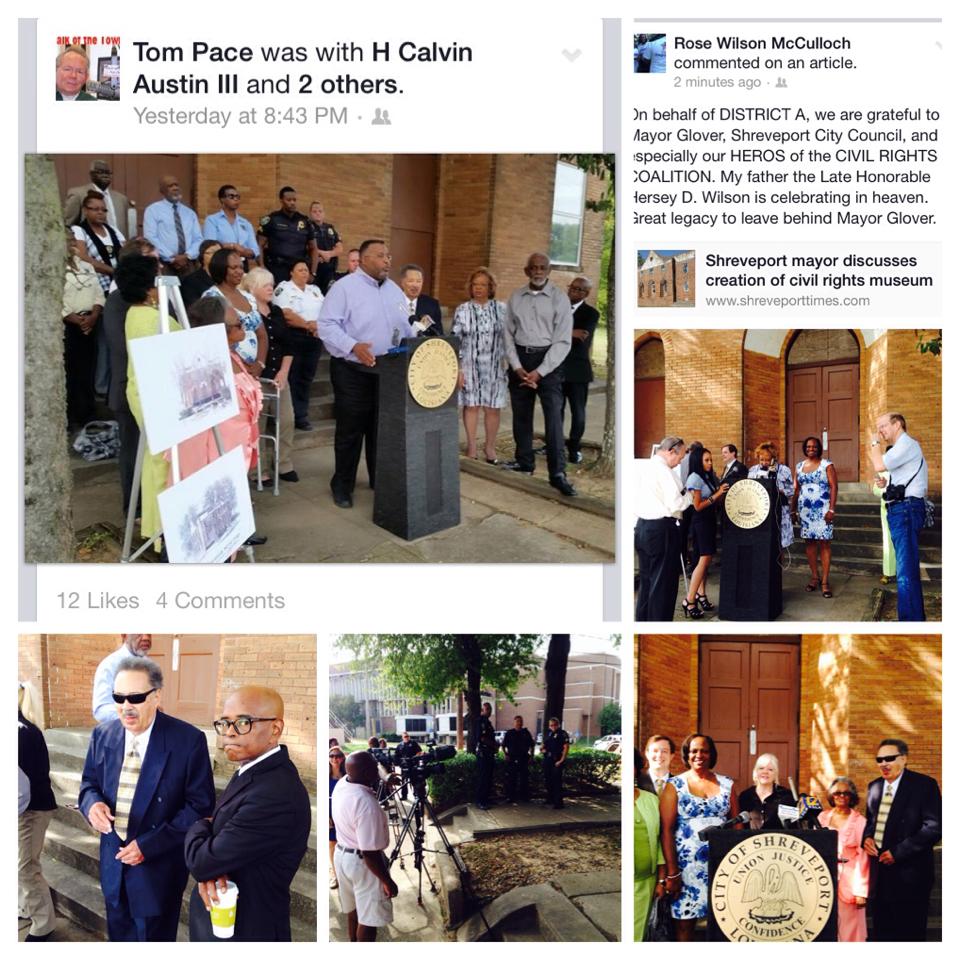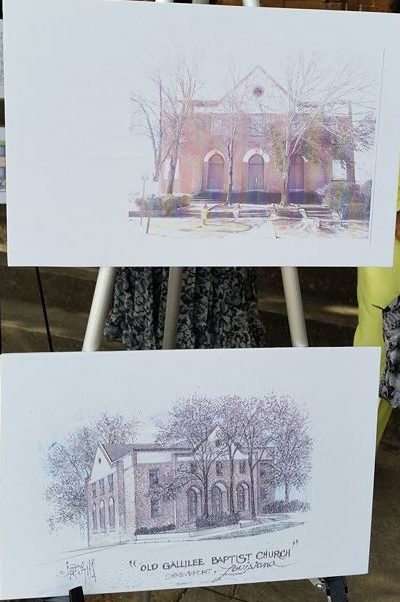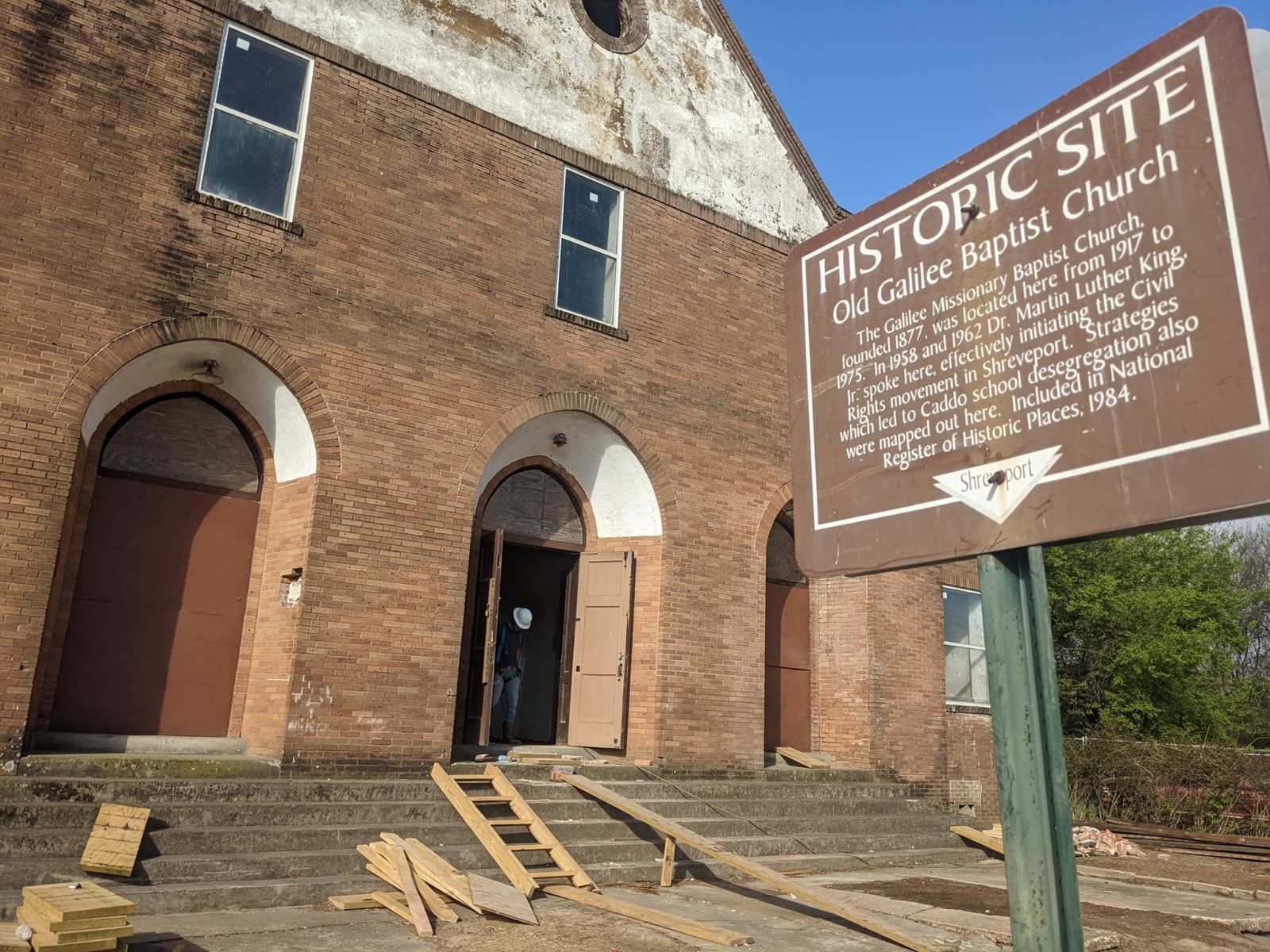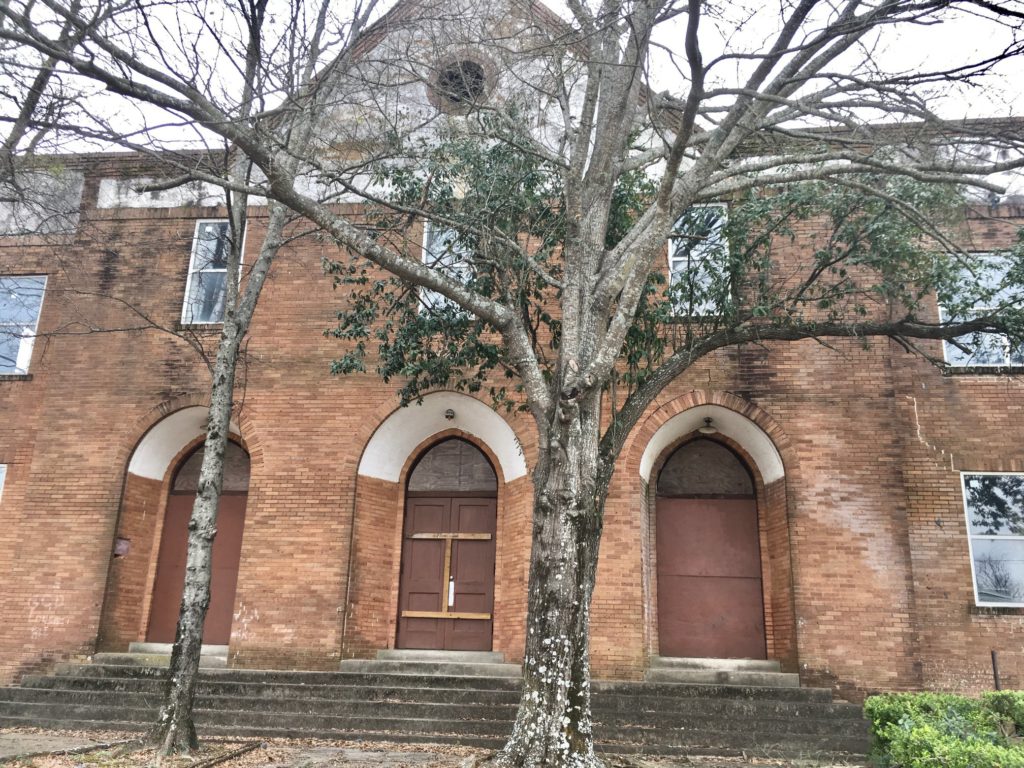
Work is 95% completed on stabilizing the old Galilee Baptist Church at 854 Williamson Street. That is good news for the historic structure, which is slated to become the area’s first Civil Rights Museum. At a recent press conference, Mischa Farrell, the project’s architect, gave an update, and the mood was upbeat. Farrell says she and the general contractor have been documenting every part of the historic church, and saving all salvageable components. She says the roof is now weathered in and there are new sub floors and flooring. The next phase, according to Farrell, is getting the building ‘more in the dry’ which will include installing period-appropriate windows.
She says there is $1.5m left for the Phase II work, but that possibly $3+ million more could be needed.
KSLA TV Report on Press Conference Sept. 22, 2022
Video of Mayor’s Press Conference on Sept. 22, 2022
Though the City will be applying for Historic Tax Credits and other grants that are available, supporters are also asking for public donations for the rehabilitation of the historic structure. To make a donation to the Old Galilee, contact the North Louisiana Civil Rights Coalition.
Original Story from April, 2022
The contract has been awarded and the work is underway on stabilizing the historic Old Galilee Baptist Church, located at 854 Williamson Street, behind the Shreveport Police Department/City Court complex.
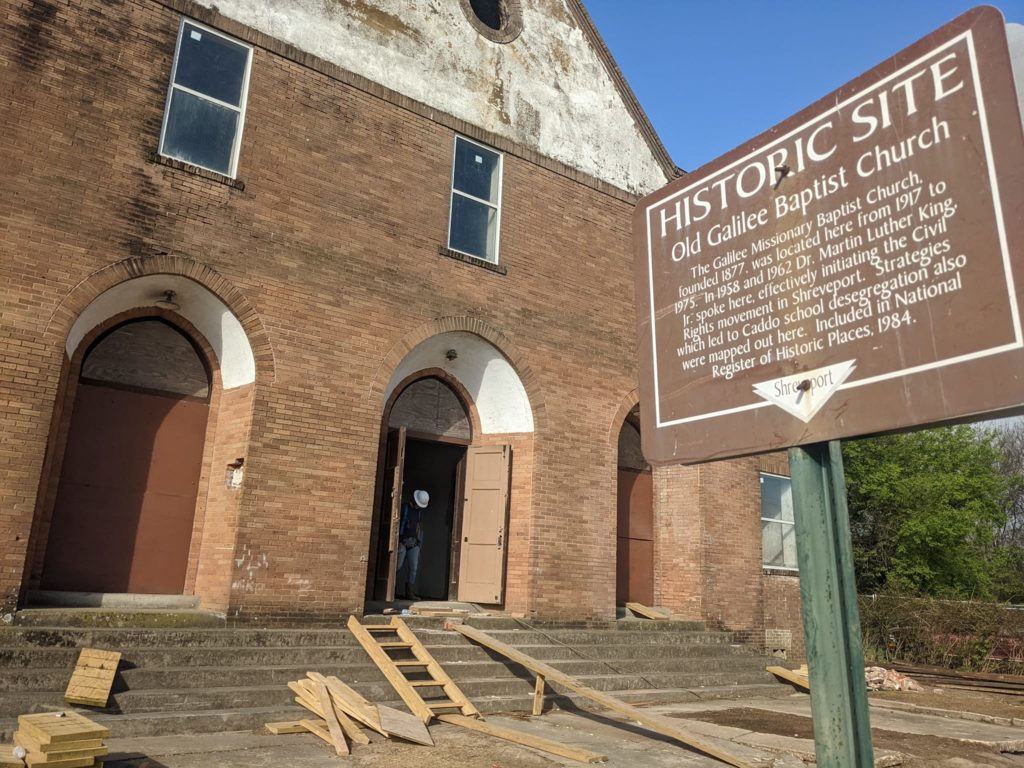
Work is underway on old Galilee Baptist Church.
The church moved to the Williamson Street site in 1917, but became a gathering place during the Civil Rights movement in Shreveport. On August 14, 1958, a number of local residents came to listen to Dr. Martin Luther King, Jr. at a voter registration drive sponsored by the United Christian Movement. Historians say Dr. King’s talk at the church ‘effectively initiated the Civil Rights movement in Shreveport.’ The North Louisiana Civil Rights Coalition has identified only a handful of the persons in this historic photo of that meeting and is asking for help in identifying others. Dr. King spoke again at the church in 1962.
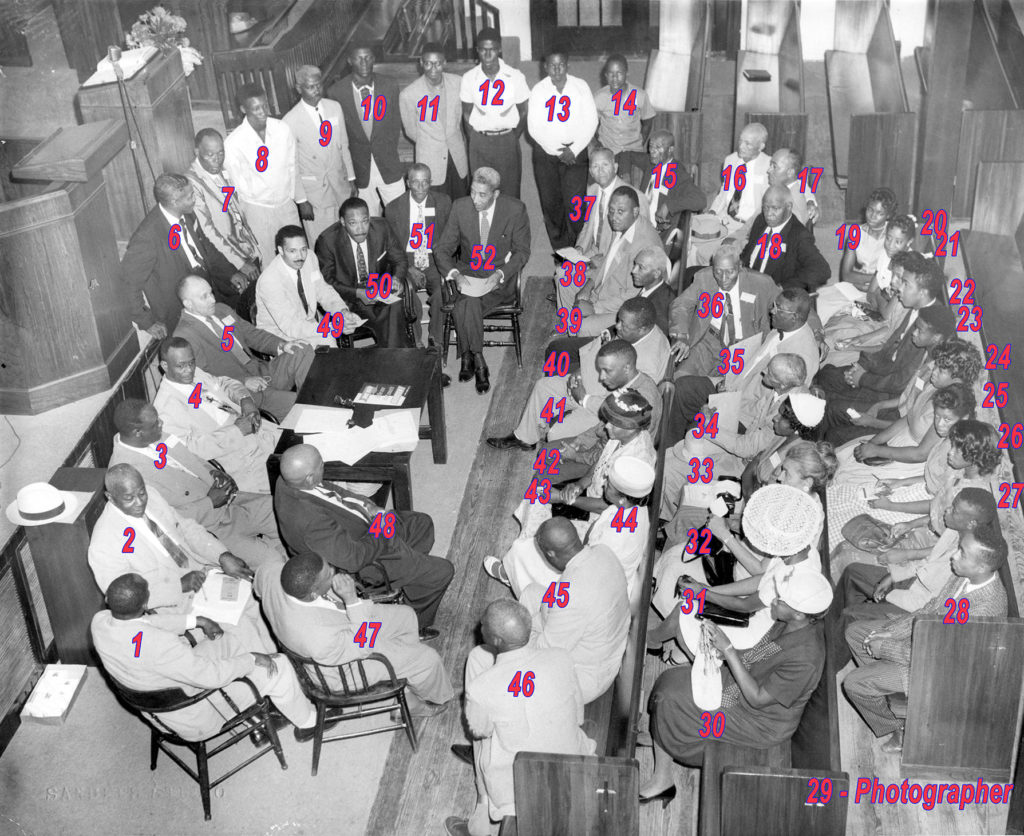
The City of Shreveport took possession of the church in 1993; in 2014, then- Mayor Cedric Glover announced that the city had started the design phase to turn the church into the Civil Rights Cultural Museum and Institute. “The Northwest Louisiana Civil Rights Coalition approached Mayor Glover to restore the building. They wanted to preserve the historic significance of this building and what it meant to this community,” says Bonnie Moore, director of the City of Shreveport’s Department of Community Development.
